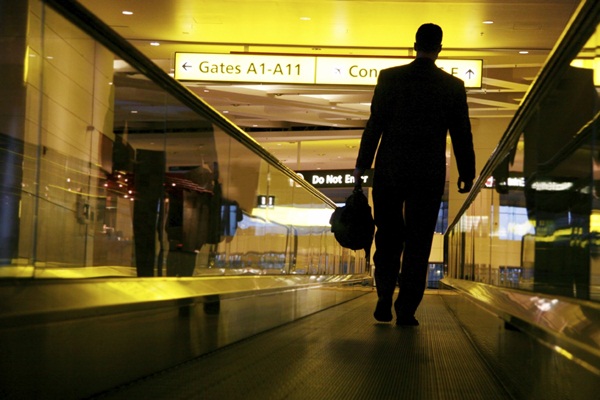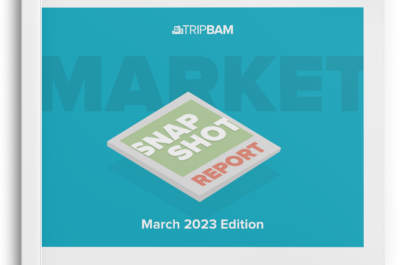Samantha Dyson, Global Account Manager at ATPI, shares recommendations for budgets as travel gets back on track.
While travel spend has naturally reduced over the last 18 months, stricter budgets and uncertain economies mean that many corporates are looking to limit expenditure as people begin to move again. With the evidenced return of travel as countries such as the United States and Australia open up again, now is the time for corporates to assess their spending and evolve their ways of working to align with the new travel landscape we find ourselves in.
Much like all aspects of day-to-day life, Covid-19 has changed the way we go about our business. As such, corporates must consider new ways to make cost savings with many old methods now considered redundant.
1. A new normal calls for a new travel policy
Many corporates are now finding that their pre-Covid travel policies no longer reflect how their organisation travels or plans to travel. Previous guidelines on booking corporate travel as far in advance as possible, to make the most of cost savings, are unrealistic. With the ever-evolving travel landscape, and restrictions rapidly phasing in and out, most corporates remain tentative to commit to trips until nearer the time. While this was previously an inefficient use of travel budgets, the use of apps and tools specifically designed for last minute travel can help to target cost savings.
For example, SeatFrog offers an alternative way to save by allowing travellers to bid for first-class train seats and if successful, SeatFrog will send a new e-ticket for the upgraded journey. TripBam offers a similar service for booking hotels – with the tool continuing to search for better rates at the same hotel, even after you’ve booked. This helps reduce the cost of a trip right up until the date of departure, without the need to plan too far in advance. Increasingly, corporates are adding permission – and even encouragement – for TMCs to embrace these tools in order to make the most of budgets.
2. Don’t shy away from negotiations
As with many industries, hospitality has seen a significant reduction in business due to the pandemic. While businesses may be missing a year’s worth of travel data to use as leverage in negotiating hotel rates, hotels themselves have received a fraction of the clients that they otherwise would have. Because of this, it is likely that hotels will be in fierce competition with one another to claim as much of the re-emerging travel spend as possible and will offer attractive rates as a result.
In a post-pandemic world, travellers will be able to stay in more comfortable accommodation at more attractive rates. Many hotels are offering percent discounts across the whole of a hotel’s portfolio, including hero properties that may have been previously excluded. In some cases travellers will now be able to stay in 4 or 5-star hotels for the price of 3-star accommodation. Alternatively, corporates can look to review and reduce nightly caps in the current travel policy to reflect these new, lower prices. Plus, many hotel loyalty schemes have been reimagined and bring new benefits to travellers – including access to contact-free check in – meaning such programmes can bring added-value in helping to keep travellers safe.
3. Review air route deals
Air fares tell a similar story to hotel RFPs and your TMC partner will be able to discuss directly with airlines how to get the best fares. TMCs have access to separate negotiated rates and exclusive fares that they can pass on to their clients, offering significant cost reductions for corporates. It is also worthwhile re-evaluating your existing deals, as the air travel landscape has changed significantly over the past year. New providers may be servicing the routes through which your employees travel, or your organisation’s previous travel routes may no longer apply.
Most airlines have also extended the expiration date of their loyalty schemes by six months, which should be taken into account when reviewing the loyalty schemes your organisation benefits from. Knowing that you are optimising your value for money in this area is essential.
4. Reworking your travel approvals process
For many, the role of travel approval systems changed overnight, with the focus shifting from cost to prioritising safety, security and the necessity of travel. Of course, cost reduction remains important as corporates begin to navigate a dramatically different business landscape, particularly for organisations in sectors heavily impacted by an unstable economy. Importantly, travel approval is an effective way of curtailing spend, as it allows corporates to prevent trips that break budget or indulgent out-of-policy expenses such as travelling first-class or a five-star hotel stay. Finding an adaptable travel approval system will be invaluable in the coming year, as circumstances and factors that influence travel decisions will likely continue to fluctuate and require a responsive system to deal with these challenges and changes as they arise.
As a return to travel is on the horizon, there’s no better time to recognise the opportunities presented by the current economy and make pragmatic adjustments that, cumulatively, can make a big difference to your business’s bottom line.
Samantha Dyson is a Global Account Manager at corporate travel specialist ATPI. The ATPI Group operates from more than 100 offices worldwide and has successful operations in corporate travel, corporate event management, online travel technology and specialist travel management for a number of industries.











































































































































































































